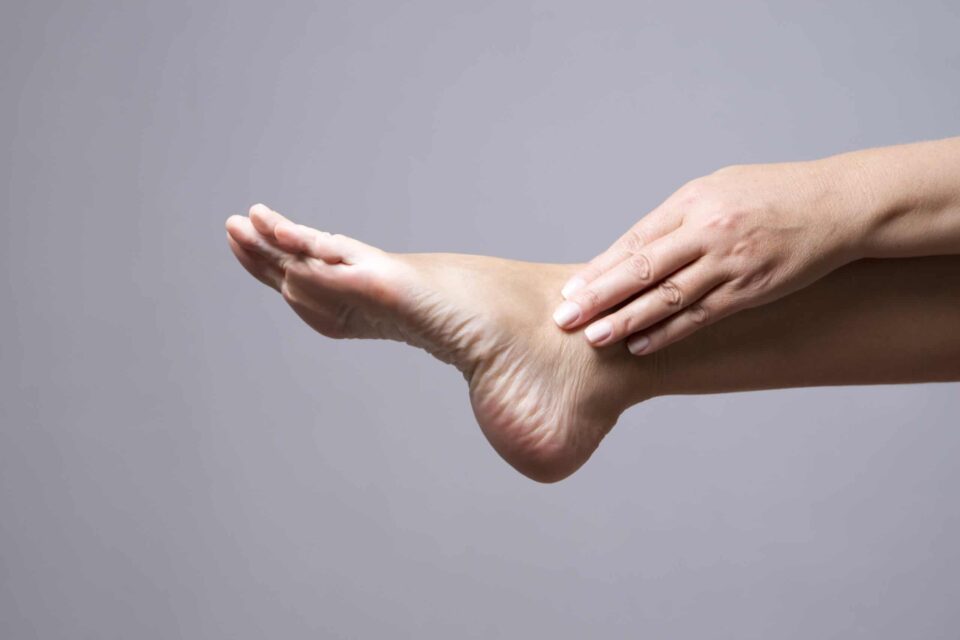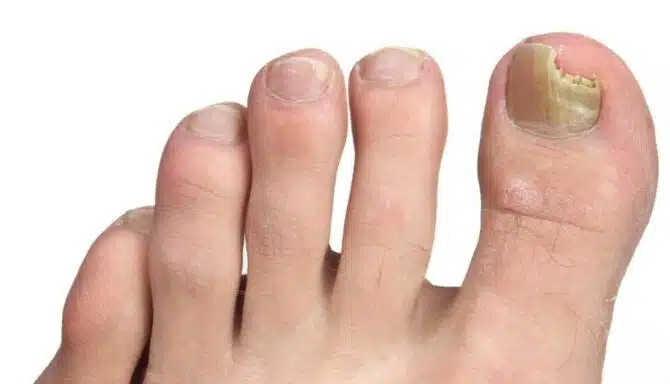Despite the alarming sound, ankle cracking isn’t always a cue to rush to your doctor’s office.
Ankle popping can sometimes signify an underlying condition that needs attention, like a fracture, sprain or tendon injury. It can also occur for less severe (and mysterious) reasons we don’t understand. Many people experience frequent ankle popping and, lo and behold, their x-rays and MRIs come back clear.
However, this doesn’t mean you should ignore ankle cracking. Even if there is no sign of an acute injury, educating yourself on this phenomenon is always a good idea.
What Causes Ankle Cracking?
Injuries / Medical Conditions
- Ankle sprain
- Ankle fracture
- Osteochondritis dissecans, or the loosening of the talus bone in the ankle.
- Aging-related cartilage loss, which is common in people with osteoarthritis
Natural Causes
- Muscle activity: tendons can snap in and out of place or slip over the bone during exercise. This is the most common cause of ankle cracking.
- Gas release in the joints
Why The Cracking and Popping Noises?
Tendon / Muscle Activity
For non-painful ankle cracking, the most common cause is your peroneal tendons. These tendons are a component of the three peroneal muscles found in the lower leg.
During exercise and vigorous activity, they can slip in and out of the groove that holds them in place, causing a snapping noise. Tendon dislocation and tendons rubbing over the ankle bone are two reasons they can become dislodged. Don’t worry – this is perfectly normal and not cause for concern.
Gas Release
Our joints can also release gas, which may be surprising. Joints have capsules filled with a lubricant that keeps them functioning properly.
When you move your ankle or perform stretches, it can cause the capsules to release nitrogen bubbles, amongst other gasses. This will cause a cracking sound, similar to the sound you hear when you crack your knuckles.
Gas-related ankle cracking is not a sign of a serious joint problem and doesn’t usually cause pain. You’re also more likely to experience this during exercise after a long sedentary period or when you first get up in the morning.
Injury
A sprain can overly stretch or tear the ligaments despite your ankle joint’s reputation for being strong. Unfortunately, a cracking sound is a telltale sign of a sprain or fracture. Physically active people need to be careful of recurring sprains to avoid chronic ankle instability. This is especially true for people who play sports with lots of side stepping, like tennis.
You might also hear a crack in the case of an ankle fracture. If you’ve broken one bone instead of multiple, it can be difficult to distinguish it from a sprain. For both foot injuries, x-rays and MRIs are imperative to determine the severity.
Osteoarthritis
If you have osteoarthritis in the ankle, you may occasionally hear a clicking sound. According to Medical News Today, this is called crepitus, a general term for joint popping. Similar to gas release in the joint, it can mean that air is moving in the joint. On its own, it isn’t harmful, but osteoarthritis does come with additional symptoms.
So, Is Ankle Cracking Bad?
To understand if your ankle cracking is harmful, monitor for additional symptoms and determine the cause. Also, looking at the circumstance associated with the popping noise is crucial. Is it occurring all the time? Or did you hear a sudden crack during a painful fall?
Ankle popping and cracking after a fall can likely indicate a sprain or fracture. It’s essential to get checked as quickly as possible and schedule MRIs and x-rays if this scenario sounds like you. Be on the lookout for other symptoms, such as:
- Instant pain
- Swelling
- Bruising
- Pain when attempting to put weight on the foot
- Pain when lightly touching the affected area
- Deformity
If you haven’t experienced a sudden injury, there is a strong chance the cracking is associated with:
- Tendon and muscle activity
- Gas release in the joints
- An underlying foot condition, like osteoarthritis
It’s normal to wonder if these occurrences cause damage. For example, with osteoarthritis, your cartilage slowly wears away as time passes. Your bones are rubbing together, causing pain, stiffness, and sometimes bone spur formation. Luckily, several treatment options are available for osteoarthritis in the ankle or foot. These include medications, supportive footwear, surgical intervention, custom orthotics, and physiotherapy.
Joint popping in the ankle due to gas release or tendon displacement (unless you’ve injured the tendon) is not cause for alarm. Healthy joints make noises quite frequently without pain or complications.














